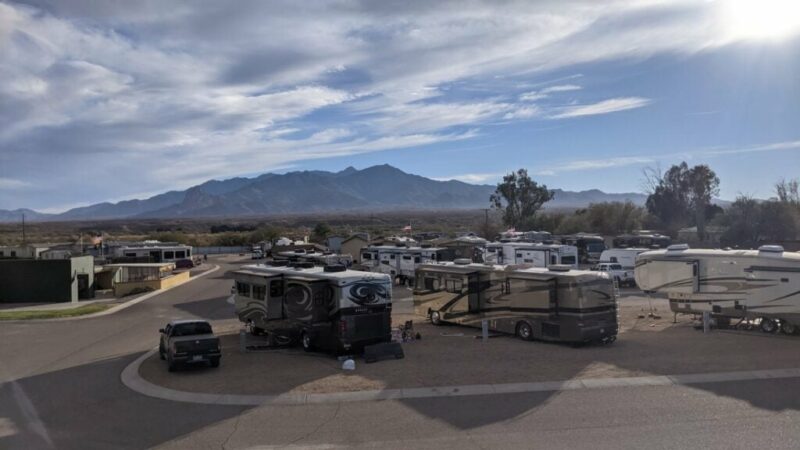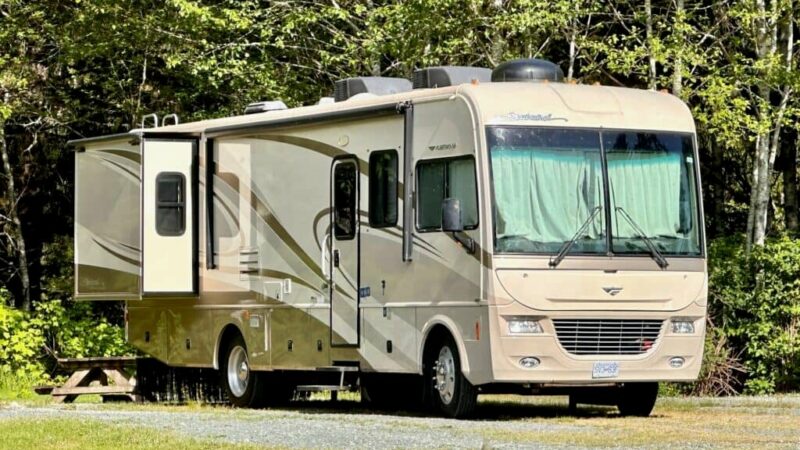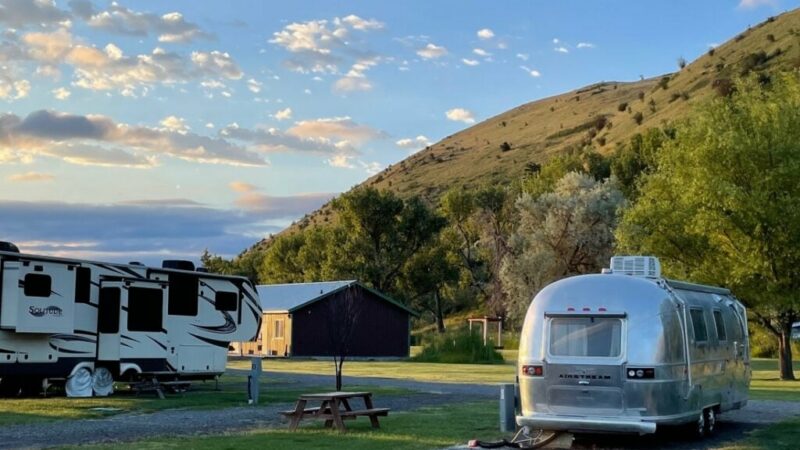How Long Do RV Brakes Last?
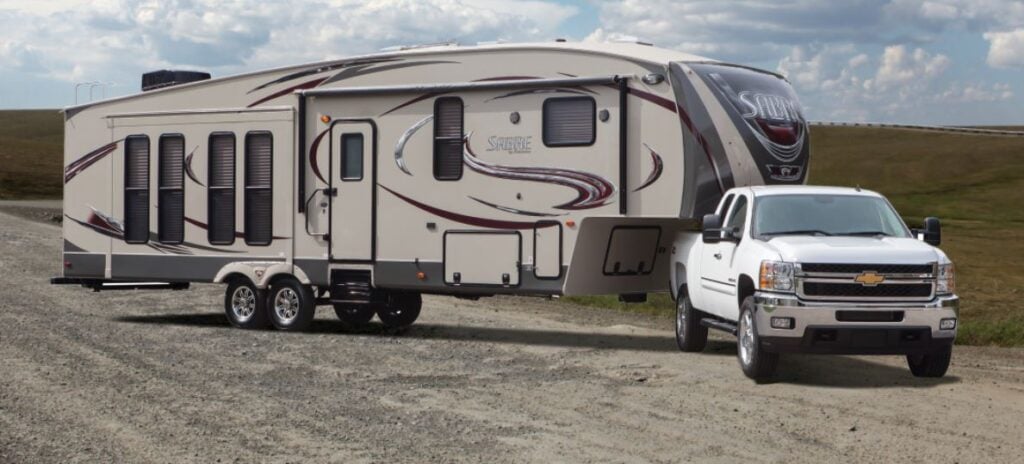
How Often Do You Need New RV Brakes?
RV brakes are an important part of the makeup of your vehicle and could mean the difference between a fun, carefree trip and an accident waiting to happen. Because your truck is towing thousands of pounds or your 30,000-pound motorhome is carrying you and all your belongings down the road at 60 mph, you need to make sure you have RV brakes that will stop you when needed.
Let’s take a look at some critical aspects of keeping your RV brakes in top shape.
Stay on top of RV brake maintenance
It’s difficult to determine exactly how long RV brakes will last because many factors affect wear and tear. With that in mind, it’s a good idea to check your RV brakes every time you head out on the road. If you full-time RV, make sure you check your brakes at least once every 3,000 miles or every three months. Some say you should replace your brakes every two years and others recommend every year or 12,000 miles.
Use an online tool like RV LIFE Maintenance to keep track of your RV brake maintenance and to receive timely reminders when maintenance is due.
What factors affect RV brakes wear?
Factors such as how many miles you’ve driven, what type of roads you have been on, how often you brake, and whether you brake quickly or hard, as well as if you have been on steep mountains or flat highway driving or even uneven back roads, can all affect brake wear.
It’s always best to have a good plan for checking brakes regularly. Load and weight can even affect brakes that get little use and cause uneven wear on your braking system.
Type of road
The type of road will affect how you use your brakes. Steep and mountainous terrain will require more breaking than straight, level highway driving.
Your trailer’s weight
CAT scales are great for knowing the exact weight of the trailer and gear you are towing. Always know and stay within your Gross Vehicle Weight Range (GVWR) so you aren’t putting unnecessary wear and tear on your brakes.
How often you drive
There are many types of RV drivers. You might be full-time but possibly work camp and are parked all summer; you may be a weekend warrior; or you may go from place to place across the country on a regular basis. Obviously, the more you drive, the more wear you have on your brakes. Have them serviced accordingly.
Types of brakes
Different types of brakes have different types of durability and maintenance requirements. Make sure you know what you have and how to maintain them.
Also, brakes are not something you want to save money on, so you don’t necessarily need to get the cheapest you can find. “You get what you pay for” also applies to RV brakes. The higher the quality, the longer they last.
Driving habits
Driving habits affect the brakes of all different kinds of RVs. Traveling above the speed limit means you press harder on the brakes when you slow down. If you tailgate, you will use your brakes more often and wear them down quicker.
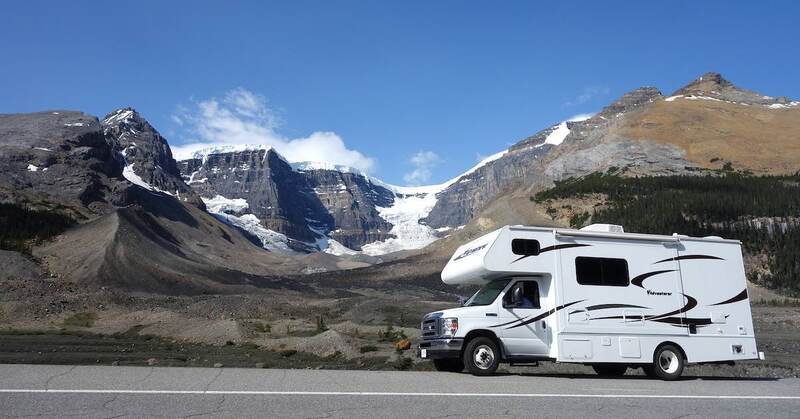
How do I know if my brakes need replacing?
There are some signs you can look for that might indicate you need to replace your brakes. Issues such as noise, pulling, pulsing, and pedal depression during braking might be indications that, at minimum, you need to have your brakes checked.
If your brakes begin to make a loud noise, make sure and have them checked. A well-functioning brake system should be quiet. Overheated or worn disc brakes will make loud noises when activated and operate with significantly decreased stopping power.
Vibrating or veering as you are driving are also indications that your brakes are in need of a checkup. Often, you will have a dashboard brake light that will indicate a faulty brake system.
Brake failure could result in your wheels locking up, causing severe tire damage.
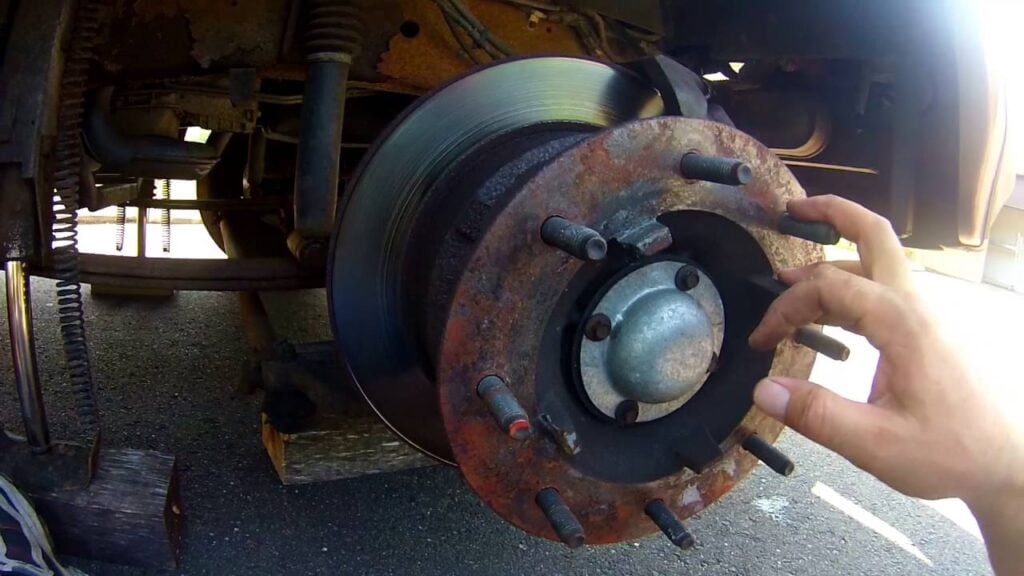
How do I check my brakes?
Different types of RVs and different types of braking systems require different types of brake checks. The safety of you and your family should be of great importance, so brake checks and maintenance should be a regular part of your overall RV maintenance routine. Check your brakes often, have them checked by a certified mechanic at least yearly, and take it to a mechanic if you see any signs that they are malfunctioning.
Ahead is an overview of each type of RV, but also check some YouTube videos to get more information. Also, check out this article on “Tech Tips for Maintaining Your Brakes.“
Motorhomes
For motorhomes with air brakes, check the cartridge used to absorb excess moisture in the system. Droplets in the air brakes reduce the air pressure, which can lead to brake failure. Check the cartridge at least once a year and replace them every two to three years. A diesel pusher will generally have air brakes.
For hydraulic brakes, inspect the rotors, brake pads, drums, and linings. Check the master cylinder as well as fluid levels. Flush the brake fluid at least every two years. Make sure the rotors are free of any deep grooves or cracks.
Measure the brake pads to confirm they are wearing evenly, and check for any rust in the system. Corrosion will cause reduced braking capacity and uneven wear.
Towable RVs
Towable RVs can have two types of brakes: electric or hydraulic. Electric brakes are activated using an electrical connection through the trailer’s plug to the towing vehicle.
Hydraulic surge brakes initiate automatically. The braking motion of the tow vehicle creates pressure on the hydraulic system and activates the brakes on the trailer.
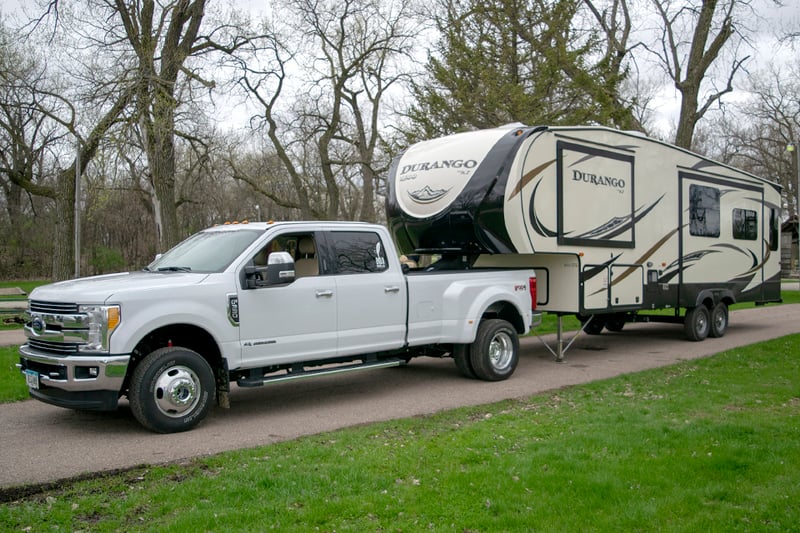
For a towable RV with an electric braking system, be sure to check for worn shoe linings. Check for worn or missing parts, and adjust them regularly to keep the appropriate spacing between the drum and shoes. Replace any shoes with cracking, separation, oil saturation, or a lining that’s less than 1/16-inch thick.
How much can you tow without trailer brakes?
Driving without trailer brakes depends on the weight of the trailer you are pulling and individual state regulations.
Small trailers under 1,000 pounds may not require brakes, but most towable RVs will need to have brakes and will come equipped with them.
Consider your 10,000-pound trailer loaded with your belongings. You will want to have the most stopping power available.
Trailer brakes generally last about 12,000 miles. You are also required, under federal law, to have an emergency breakaway system for your travel trailer.
Track your RV maintenance
RV brakes are a vital part of the systems on any type of RV that you own. Everything from the roads you drive on to the way you drive can affect the wear of your RV brakes. Taking time to do proper maintenance, checking your brakes frequently, and fixing problems right away, will all go toward saving you money in the long run and keeping you and your family safe on the road.
Make sure you keep track of all your RV maintenance and repairs with an online tool such as RV LIFE Maintenance. Not only can you keep all of your documents in one place, but you’ll also receive timely reminders when maintenance is due to help you avoid costly repairs and potentially serious accidents.
The post How Long Do RV Brakes Last? appeared first on RV LIFE.
Source: https://rvlife.com/rv-brakes/





